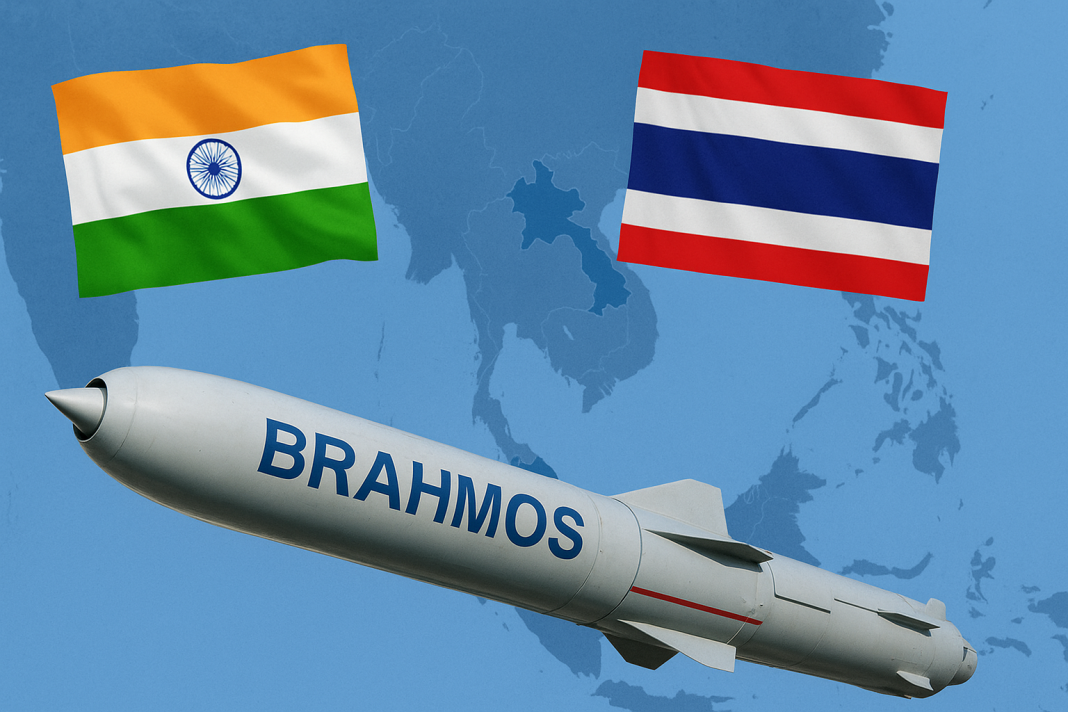What Is the Claim Being Spread About the BrahMos Deal?
Several social media accounts are widely sharing a claim that Thailand has rejected a deal to buy BrahMos missiles from India. This claim is mostly coming from accounts based in Pakistan and some other regions. One post in particular says, “After the Phalgam clashes, the Indian media tried to spin a BrahMos deal with Thailand. But HUMINT confirms Bangkok neither plans to buy nor has its military even proposed such a purchase, pure Indian propaganda for global optics.”
This post links the alleged rejection to events like Operation Sindoor and recent clashes in certain areas. It suggests that India is spreading false stories about its defense agreements to improve its global image.
Since these claims are being shared widely, it is important to investigate and understand whether there is any truth behind them.
Snubbed by America, Thailand Turns to Sweden: $596M Gripen Jet Deal Seals Air Force Shift
What Do the Reports Say About the BrahMos Discussions?
After reviewing various news reports and trusted sources, it becomes clear that this claim is misleading. There is no official statement from the Thai government confirming that it rejected or declined to purchase the BrahMos missile system from India.
However, several reports from past years show that discussions and interest between Thailand and India have indeed taken place.
In 2019, a report from Saigon News, a Thailand-based news portal, mentioned that Thailand was in negotiations with India regarding a potential purchase of BrahMos supersonic cruise missiles. The report clearly states that Thailand and India were still holding discussions and that they had not signed any final agreement at that time.
Further, in 2023, the EurAsian Times reported that Thailand showed “keen interest” in the BrahMos missile system, which is an Indo-Russian defense project. According to the report, Thailand’s interest increased after the Royal Thai Navy Chief visited India in December 2018, where both nations held military and defense cooperation discussions.
These reports confirm that Thailand and India have been holding talks for several years and that Thailand has expressed interest in the BrahMos missile system. However, it is important to note that expressing interest or holding discussions does not mean that they finalized a deal or rejected the offer.
No trusted news outlet has reported that Thailand outright refused the BrahMos missile offer. Moreover, Thailand’s government has not released any official statement confirming such a rejection.
What Do We Know and What Doesn’t the Claim Show?
Based on available information, here are the facts:
- Thailand and India have engaged in discussions regarding the possible purchase of BrahMos missiles.
- Reports from 2019 and 2023 confirm that Thailand expressed interest and explored the idea of acquiring these defense systems.
- These discussions have been part of long-standing defense relations between the two countries.
- No formal agreement has been announced, and no deal has been signed as of now.
- There is no credible report or official confirmation that Thailand rejected or declined the missile deal.
- The social media claim linking the rejection to Operation Sindoor and recent clashes lacks any supporting evidence.
Defense deals between countries often go through multiple phases of discussion, assessment, and negotiation. It is common for countries to express interest without immediately signing a contract. Sometimes they explore discussions, sometimes they delay them, and sometimes they pause them. People should not mistake this normal process for refusal or rejection.
China unveils YJ-12 Mach-6 missile drawing direct comparisons with India’s BrahMos
Some sources appear to spread misleading claims to create doubt and confusion, possibly for political reasons or to influence public opinion. However, fact-checkers have shown that reliable sources do not support such claims.
Understanding the difference between talks and finalized agreements helps people interpret news about military cooperation. Without verified statements or documented agreements, people cannot draw conclusions based only on speculation or unconfirmed reports.

